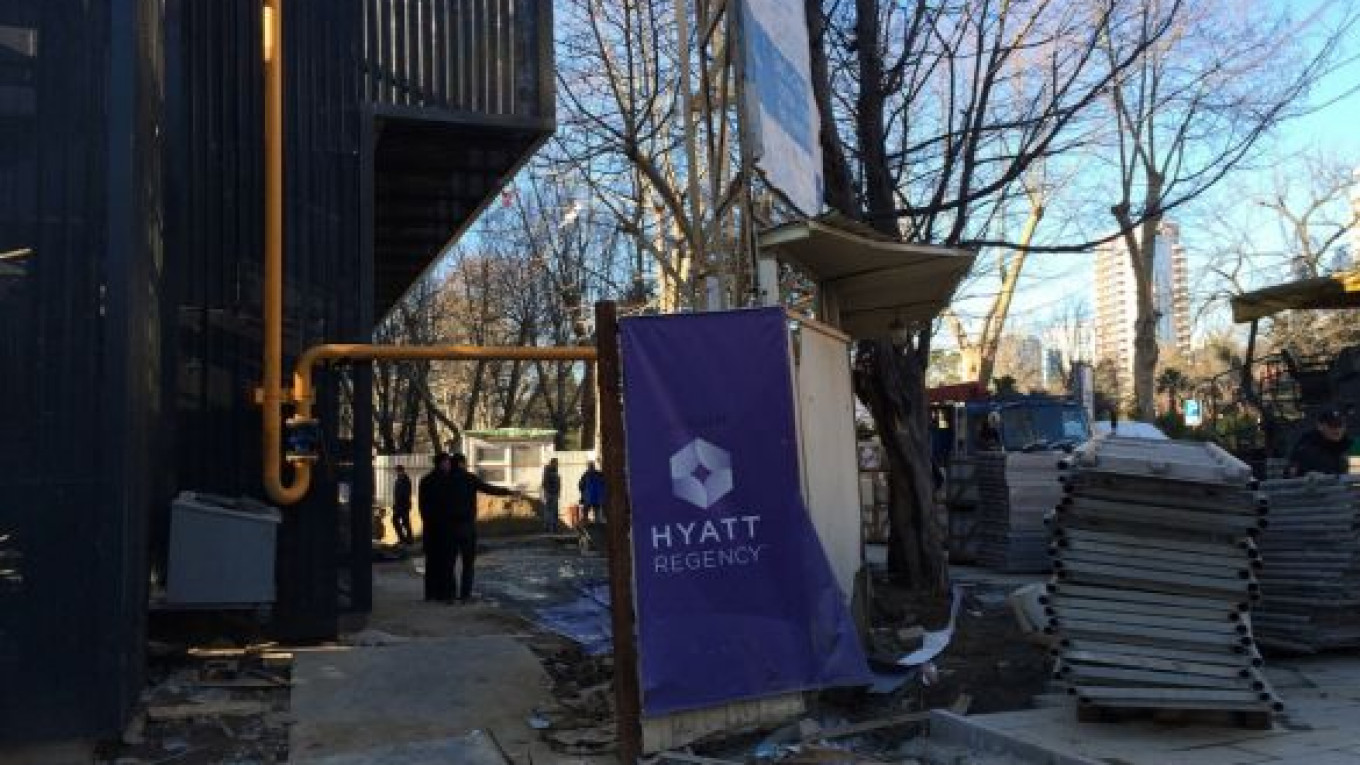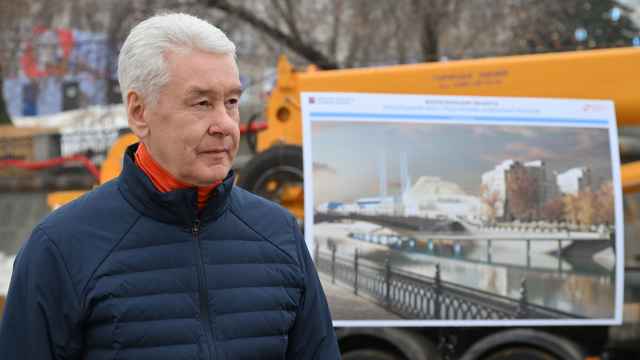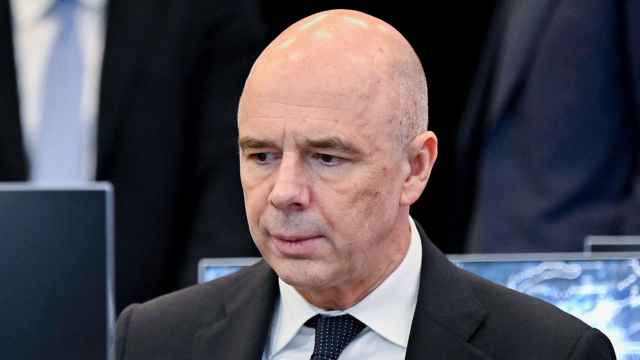SOCHI — As thousands of foreign journalists begin to flock into Sochi, questions regarding their accommodation remained unanswered, the president of Russia's National Olympic Committee said.
While touring the new Sochi Media Center, designed to accommodate journalists who are not accredited for the Games, Alexander Zhukov said Monday that there were still problems with some of the nonsporting facilities, but he placed all responsibility on private companies.
"We hope that the owners of these hotels will resolve these issues soon," he said in response to a question from The Moscow Times.
Only six of nine media hotels were fully functional as of Sunday, according to the Sochi 2014 Organizing Committee, with many journalists complaining about the lack of a stable Internet connection and stray dogs running around the stucco-decorated buildings.
While touring media hotels in Krasnaya Polyana, the site that will host the ski events of the Games, a Moscow Times reporter found dusty windows, some of them still with paint residue, and dozens of workers carrying garbage out.
A receptionist at the Gorki Plaza hotel said matters were complicated by the fact that all facilities were brand new.
"All of our rooms are ready; the only problem we have is that all the equipment is new and sometimes both guests and staff do not know how to use it," she said, refusing to give her name.
The Gorki hotel complex was developed by Russia's biggest bank, Sberbank, which is owned by the state. Due to multiple changes in the hotel complex's ownership, it was one of the construction sites to experience the most delays.
On Sunday, the International Olympic Committee urged Russia to resolve the hotel issue but expressed assurances that things would run smoothly.
"We received information that this will be addressed, but in general, for the athletes the stage is set for great performances, both with regards to the villages and with regards to the sports facilities," IOC President Thomas Bach said, the Associated Press reported.
In the coastal Olympic Park, journalists were also the very first guests of numerous hotels. Some reporters interviewed by The Moscow Times complained about excessive security precautions that they had been urged to follow.
Foreign journalists were encouraged not to leave their hotels while not working, and to strictly follow guidelines offered by the U.S. State Department.
"We are predisposed to hate these Games. We are prepared to be afraid and have a terrible experience," a Western journalist who wished to remain anonymous said, citing fear of reprisal from his employer.
More than 24,000 rooms have been built in Sochi, making the resort the most hotel-dense area in Russia, with a total of 55,500 rooms. Today, Sochi has more hotel rooms than Moscow, a fact that has prompted concerns that they will not be filled by enough guests after the Games.
But many of the hotels will not be filled during the Games either, simply because they have not been finished on time.
The Sochi Plaza Hotel in central Sochi, which was on the list of Olympic facilities, will not be able to host journalists or official delegations.
"Look at this, how do you imagine journalists or anyone else can live here?" a security guard at the entrance said, pointing at the future hotel lobby, still full of construction workers.
"Construction is not going to be finished by the opening ceremony, or even by the end of the Olympics," he said.
One of the construction managers harshly opposed any attempt to take a photo of the ongoing construction.
"Be careful, your camera might slip out of your hands — aren't you aware that it is dangerous for a frail little girl to walk around construction sites?" he asked.
The grand Hyatt Regency Hotel, which was supposed to be finished by the end of 2013, will not be open for the Olympics either.
"Half of the rooms are ready," said one of the construction workers. "But we do not know when we will finish," he said, refusing to give his name.
Despite these delays, many foreign reporters have not noticed all the difficulties.
Hiromi Kyushiki, a Japanese reporter from Sapporo Television Broadcasting, was more interested in the actual sporting events than preparations.
"We come from Sapporo; it is a city where winter sports are very popular, so first and foremost we came to Sochi to cover the results of our athletes," Kyushiki said, adding, however, that the increased attention to the Games' security was something that could not go unnoticed.
"In recent times there has been a lot of talk of possible terrorist threats, so we will be covering the security measures introduced for the Olympics as well," she said.
"I do not think that the Sochi Olympics will fail, but on the other hand, I do understand that these Games will be held with enhanced security measures," she said.
Contact the authors at [email protected] and [email protected]
A Message from The Moscow Times:
Dear readers,
We are facing unprecedented challenges. Russia's Prosecutor General's Office has designated The Moscow Times as an "undesirable" organization, criminalizing our work and putting our staff at risk of prosecution. This follows our earlier unjust labeling as a "foreign agent."
These actions are direct attempts to silence independent journalism in Russia. The authorities claim our work "discredits the decisions of the Russian leadership." We see things differently: we strive to provide accurate, unbiased reporting on Russia.
We, the journalists of The Moscow Times, refuse to be silenced. But to continue our work, we need your help.
Your support, no matter how small, makes a world of difference. If you can, please support us monthly starting from just $2. It's quick to set up, and every contribution makes a significant impact.
By supporting The Moscow Times, you're defending open, independent journalism in the face of repression. Thank you for standing with us.
Remind me later.






